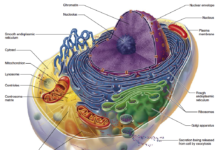Research Update
Obstructive sleep apnea, or periodic interruptions in breathing throughout the night, results in thickening of blood vessels and increased risk of several forms of heart and vascular disease. Obstructive sleep apnea is thought to affect one in every 50 women and one in every 25 men in the United States. Standard treatment involves a mechanical application of air pressure. Anything that blunts sleep apnea’s effects on blood vessel physiology could reduce its impact on disease risk, according to Michael Hart, professor of medicine at Emory University School of Medicine and Atlanta Veterans Affairs Medical Center.
Cyclically depriving mice of oxygen – inducing “chronic intermittent hypoxia” – in a way that simulates obstructive sleep apnea leads to the development of pulmonary hypertension, a life-threatening condition in which the right side of the heart has trouble pumping blood because of resistance in the lung’s blood vessels.
Hart and his team at Emory University have identified an enzyme, NADPH oxidase, that plays a vital role in the effects obstructive sleep apnea exerts on blood vessels in the lung. NADPH oxidase is a helpful enzyme because it is responsible for making superoxide, a reactive free radical that the immune system uses to kill bacteria. Humans with mutations in genes for NADPH oxidase experience recurrent bacterial infections because their ability to fight the bacteria is weakened. But superoxide also interferes with nitric oxide, a signal that allows blood vessels to relax.
Hart and his colleagues found that chronic intermittent hypoxia forces the blood vessels in the lung to produce more NADPH oxidase. Because inhibiting the NADPH oxidase enzyme in the entire body may be harmful, Hart favors an indirect intervention, stating, “We think that strategies to lower NADPH oxidase expression induced by hypoxia may be useful in preventing hypoxia-induced pulmonary hypertension.”
Source:
Nisbet et al. The Role of NADPH Oxidase in Chronic Intermittent Hypoxia-Induced Pulmonary Hypertension in Mice. American Journal of Respiratory Cell and Molecular Biology, May 1, 2009; 40 (5): 601.













